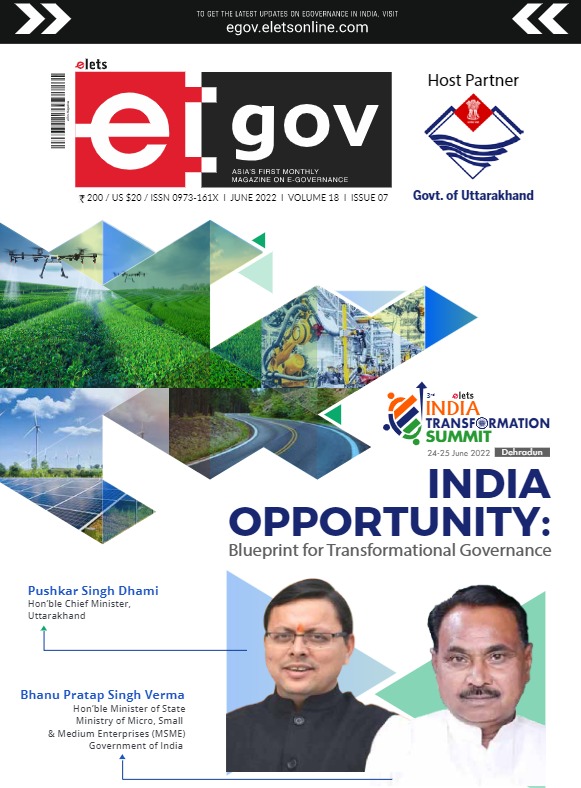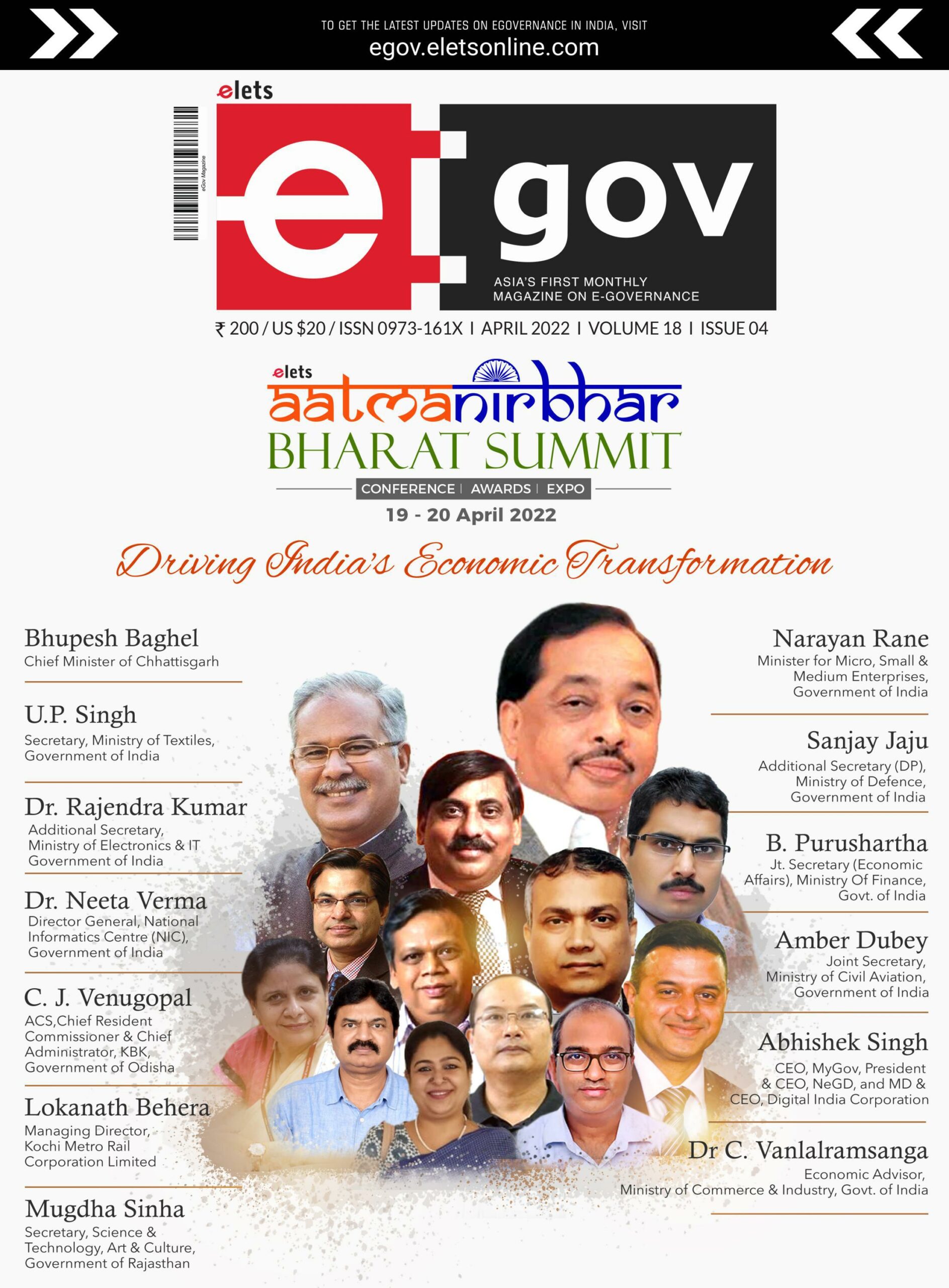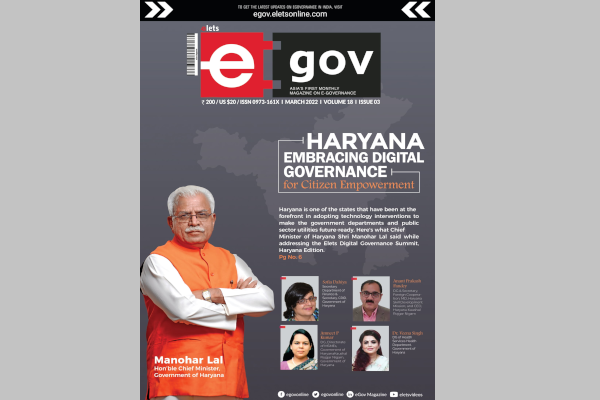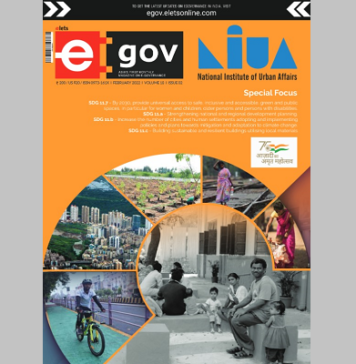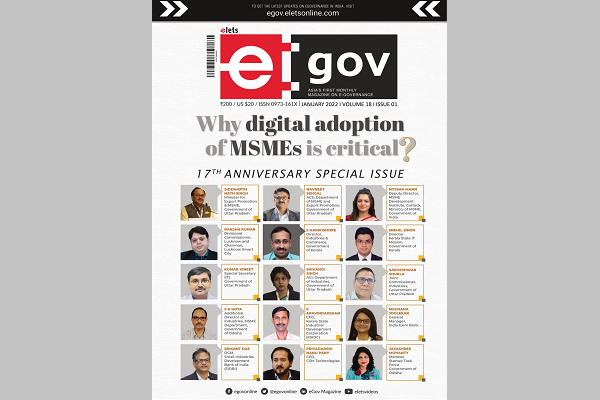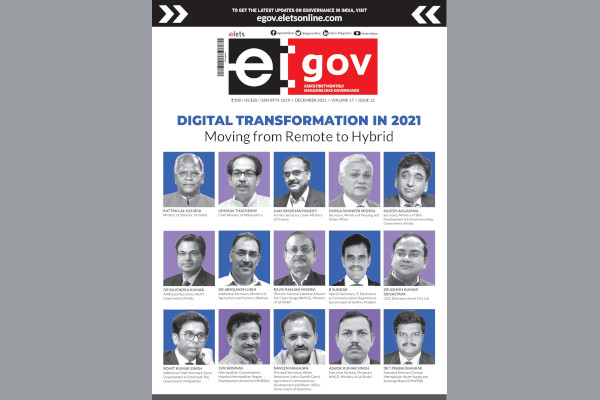
In addition to helping the Indian industry gain competitive advantage through digital transformation, we have put in place a strategic programme known as ‘Grow with SAP’ which focuses on digital enablement of youth, rural citizens and SMEs with a view to improve livability and employability, says Deb Deep Sengupta, President and Managing Director, SAP India Subcontinent, in conversation with Elets News Network (ENN).
What is SAP’s vision on India’s growth story and how is SAP contributing to its realization?
 Present since 1996, SAP has been privileged to be strengthening the IT backbone of Indian Industry. In line with our global vision of helping the world run better and improve people’s lives, we are committed to build a digitally intelligent Indian society, enterprises and nation. We are the second largest of subsidiary of SAP globally with more than 12,500 employees and 9900 customers across sectors and geographies in India.
Present since 1996, SAP has been privileged to be strengthening the IT backbone of Indian Industry. In line with our global vision of helping the world run better and improve people’s lives, we are committed to build a digitally intelligent Indian society, enterprises and nation. We are the second largest of subsidiary of SAP globally with more than 12,500 employees and 9900 customers across sectors and geographies in India.

To give you an idea, 21 out of 23 refineries in India run on SAP. Our customers handle 8 million unreserved railway tickets every day. We firmly believe in India’s tremendous potential of emerging as a regional super power and intend to contribute to the growth story with inclusiveness as the main purpose. We have always aligned our products and solutions to Government policies and regulations and often been the first to help our customers be compliant as well. GST was one such example. In addition to helping the Indian industry gain competitive advantage through digital transformation, we have put in place a strategic program known as ‘Grow with SAP’ which focuses on digital enablement of youth, rural citizens and SMEs with a view to improve livability and employability.
Small and Medium Enterprises are the backbone of Indian economy and SME sector needs a digital push for the Industry 4.0 journey. What would be your prescription for digital transformation of Indian SME sector and how do you suggest we achieve that?

The Small and Medium Enterprises are a major contributor to India’s growth story. With more than one third of GDP being contributed by around 63 million SMEs in the country and creating more than 110 million jobs, the sector is indeed a vibrant part of our economy. We firmly believe that Make in India dream would be realized through contribution by and enablement of SMEs. The journey for the SME sector to Industry 4.0 in India will have to take into consideration enablement and access to low cost technology solutions for adoption. While Government has initiated a number of schemes such as Digital SMEs, it would be interesting to work out an industrygovernment collaborative model to ensure success of this journey.
SAP’s initiative with the Ministry of Micro, Small and Medium Enterprises named ‘Bharat ERP’ is a step in that direction. We intend to enable 30000 SMEs on enterprise software as a part of the program. The cloud models offer potential for low cost offering to SMEs and cluster-based financing options of the same may be examined for viability. Emerging Technologies like artificial intelligence, IOT, Blockchain have the opportunity for India to emerge as a global leader.
SAP’s tag line these days is intelligent enterprises. Could you explain that with specific reference to Public Sector?
We have moved from the digital era to the intelligence era. The focus on automation and repeatable processes is giving way to focus on higher-value outcomes by bringing together big data, predictive analytics and agile, interconnected processes. This is likely to boost productivity, efficiency and service levels across industry and Public Services. That’s what we mean when we talk about intelligent enterprises. The adoption of emerging technologies like AI, IoT and Blockchain for the purpose of adding digital intelligence is not likely to be a one-way process. The users will be required to feed data back to systems for the emerging systems to learn. For public sector in particular, the transformation potential is huge. However, it will call for attention to some strategic areas like skill availability, standards and interoperability, cyber security and digital infrastructure.
What is your view on infusion of emerging technologies in Indian industry for achieving global competitiveness? How do you see these technologies transforming public service delivery?
At SAP we have always promoted the concept of ‘Data Driven Government’. Data is the new strategic asset. In my view, an emerging technology led transformation of public services involves cross-agency collaboration and breaking down the silos to view problems and solutions holistically by running transactions and analytics in tandem. To achieve that, we also need to ensure data quality across the entire enterprise, besides secure and efficient data storage. This will help reduce improper payments, waste and fraud by leveraging real-time insights to optimize processes and report outcomes internally and externally. This also involves leveraging insights from data to create new citizen engagement models or refine existing models.
What, in your view, would be a roadmap for a digitally skilled India and how do you see SAP contributing to the same?
There is a need to improve skill availability particularly in the area of digital technologies. As per a survey, skills on artificial intelligence are available only to the extent of 21%. There is a need to augment the efforts of digital skilling and reskilling of Indian youth and workforce. On our part, we have initiated a national level digital literacy initiative under the name Code Unnati wherein we are targeting two million citizens to be covered particularly in rural India. It’s a collaborative program in partnership with our customers and Government. The results so far have indeed been encouraging.
What would be your suggestion for a programmatic management of Industry 4.0 journey in India?
The journey of adoption of new technologies or Industry 4.0 would need to be handled programmatically. One suggestion is that we can create a governance structure similar to Platform for Industrie 4.0 in Germany wherein a cross stakeholder group works to address all the above. We keenly look forward to the new Industry policy which hopefully will address the issue of a governance structure for Industry 4.0 in India.
Be a part of Elets Collaborative Initiatives. Join Us for Upcoming Events and explore business opportunities. Like us on Facebook , connect with us on LinkedIn and follow us on Twitter, Instagram.




